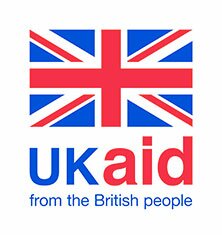Beyond the immediate health impacts, the COVID-19 pandemic represents an economic crisis of global proportions, which is likely to push tens of millions of people into extreme poverty – the vast majority in Sub-Saharan Africa and South Asia. Greatest at risk are poor and vulnerable households, including women, children, the elderly, and the chronically ill, and forcibly displaced and migrant communities. How are social protection systems responding, and what can we learn from previous epidemics?
This is a summary of a rapid literature review from Maintains, which examines the use of social protection in addressing previous epidemics and early responses to the COVID-19 pandemic, considering the – “system resilience & preparedness” (examining disruptions in processes and adaptation strategies) and “system response” (examining types of response and operational strategies underpinning them). It also documents successful reforms in the social protection space following the previous epidemics.
Impacts of pandemics on the delivery of routine services and adaptation strategies
Non-contributory social assistance programmes include cash transfers, school feeding programmes, and public works. All are affected by restrictions in physical interface between frontline service providers and potential beneficiaries.
The last mile delivery of cash to existing beneficiaries is adversely affected by distancing restrictions, and the crisis could provide impetus to cashless payments in contexts where mobile money is widespread. COVID-19 is causing , affecting an estimated 369 million children worldwide. Adaptations are being made to reduce the impact on child nutrition, but evidence from the recent Ebola outbreak suggests . While public works programmes are part of fiscal responses to address job losses in many LMICs, these have had to be adapted to reduce disease transmission risks, while some countries have waived aspects of the work requirement altogether to avoid the risks of contagion.
Liberia’s Ebola experience demonstrates that a , although the response was less aligned with national systems due to the delays in coordinating with existing actors and systems.
Changes in demand for services due to a pandemic like COVID-19
Compared with previous epidemics, which had significant health impacts but limited impacts on the need for social protection, emerging evidence on the COVID-19 outbreak suggests an . Responses in LMICs largely involve non-contributory social assistance programmes, of which cash transfer programmes are the most widely used, many being entirely new programmes in response to COVID-19, while others have .
Operational strategies to address changes in demand
A range of strategies have been used to address the sharp increase in demand because of distancing measures, both due to increased uptake of existing benefits and introduction of new benefits. Some LMICs have shifted to digital channels for rapid enrolment, and where surge capacity is a challenge, registrations are being facilitated by CSOs particularly for vulnerable communities with low-levels of literacy and internet access. Some countries are to proactively enrol beneficiaries.
Successful recovery and reform interventions after a crisis
A shock is an opportunity to build system resilience in the future. Learning from changes made during a crisis can be used to for the future.
In , efforts to develop a robust social protection system accelerated – with international donor support – including strengthening the social protection information system, providing income support, and streamlining delivery systems. Cash alone was not sufficient and needed to be to strengthen livelihoods and build resilience. Public works could in the recovery phase of crisis.
Key issues and research gaps identified in the rapid review included:
The need to understand the extent of existing coverage for affected groups, including how impacts are likely to vary across groups depending on age, gender, socio-economic status, household composition, nature of employment, sector of economic activity, and location?
What are the strengths of existing systems and capacities to scale-up social protection to newly vulnerable households, including whether information systems are appropriate and registration channels feasible in the context of literacy levels, infrastructure availability, and frontline capacity?
The Maintains programme will explore some of these issues further in its study countries, and try to propose practical solutions that would be applicable in across other similar contexts and regions.
The full rapid literature review can be found here.
The literature review was authored by Madhumitha Hebbar, Poverty and Social Protection Consultant, OPM and Laura Phelps, Independent Consultant, Humanitarian Cash and Shock-Responsive Social Protection. This summary was authored by Nick Hooton, Research Uptake Strategic Advisor for Maintains.
All Maintains evidence and articles relating to COVID-19 can be found here.
About Maintains
Maintains aims to save lives and reduce suffering for people in developing countries affected by shocks such as pandemics, floods, droughts, and population displacement. This five-year programme, spanning 2018–2023, is building a strong evidence base on how health, education, nutrition, and social protection systems can respond more quickly, reliably, and effectively to changing needs during and after shocks, whilst also maintaining existing services. With evidence gathered from six focal countries – Bangladesh, Ethiopia, Kenya, Pakistan, Sierra Leone, and Uganda – Maintains is working to inform policy and practice globally. It also provides technical assistance to support practical implementation.
This output has been funded by UK aid from the UK government; however, the views expressed do not necessarily reflect the UK government’s official policies. Maintains is implemented through a consortium led by Oxford Policy Management www.opml.co.uk.



